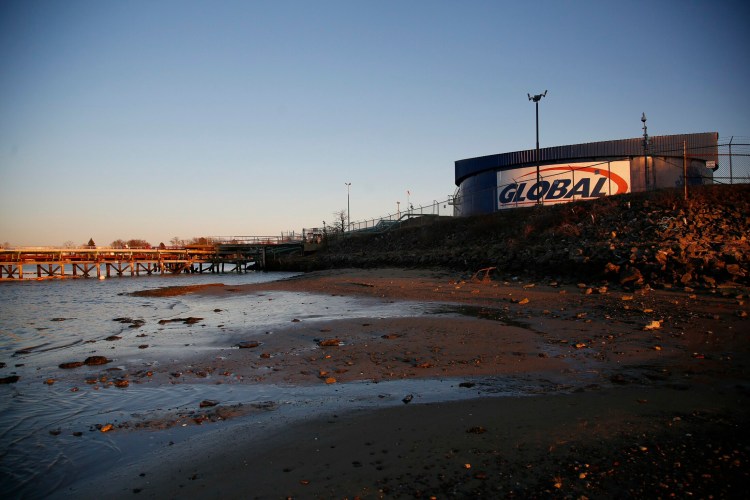Gov. Janet Mills has signed two bills into law that will affect the operation and potential closure of petroleum terminals and storage facilities in Maine.
L.D. 2033 requires the owners of petroleum terminals to remove tanks that are no longer in use and clean up the sites, which lawmakers hope will ensure that taxpayers are not left to foot costs associated with such cleanups. It was introduced by Rep. Anne Carney (D-Cape Elizabeth). A spokeswoman for the Maine House Democrats said Mills signed the bill on March 26.
Mills also signed L.D. 1915, which directs the Maine Department of Environmental Protection to study methods to measure and estimate air emissions from above-ground petroleum storage tanks. She signed that bill on March 18.
L.D. 2033 will provide an environmentally safe and fiscally sound process for closing oil terminal facilities, Carney said in a statement on the House Democrats’ website.
“An oil terminal facility can stand vacant and unused forever,” Carney said in her statement. “This bill will help make our environment clean and safe. It also protects the fiscal well being of our state, our municipalities and our residents.”
The law will ensure the safe cleanup and removal of the state’s 10 petroleum terminals and their tank farms that stretch from South Portland to Searsport, should any of them shut down operations. At the terminal in South Portland, Citgo operates 10 massive fuel storage tanks and Global Partners LP, a Massachusetts company, operates 10 tanks at the other end of the terminal property.
Carney, a member of the Labor and Housing Committee, said L.D. 2033 sets guidelines for how a storage facility should be closed based on Maine Department of Environmental Protection standards. The law requires owners to demonstrate fiscal responsibility and an ability to pay for closures.
Carney said in her statement that without having the structure in place to make companies accountable for closure and remediation, the state is denying growth opportunities to communities affected by an oil terminal facility closure. She said such sites could potentially be converted into sites for housing, working waterfront, commercial development and other types of energy production.
Those uses are far better than relegating the property to empty lots where oil tanks sit abandoned and no longer contribute to the economy, Carney said.
L.D. 1915, requiring the DEP to study ways to measure and estimate air emissions from above-ground petroleum tanks, requires the DEP to submit an emissions report to the Legislature by Jan. 1, 2021.
In addition to monitoring emissions, the DEP must identify ways to help municipalities in the use and application of mobile air quality monitoring devices capable of identifying the release of hazardous air pollutants from above ground petroleum storage tanks.
The intent of L.D. 1915, sponsored by Sen. Rebecca Millett, (D-Cape Elizabeth), is to control odor and other air emissions from oil terminal facilities.
The odor issue has been controversial in South Portland, where concerns about air pollution from oil terminals and tank farms have intensified in recent years.
Send questions/comments to the editors.




Success. Please wait for the page to reload. If the page does not reload within 5 seconds, please refresh the page.
Enter your email and password to access comments.
Hi, to comment on stories you must . This profile is in addition to your subscription and website login.
Already have a commenting profile? .
Invalid username/password.
Please check your email to confirm and complete your registration.
Only subscribers are eligible to post comments. Please subscribe or login first for digital access. Here’s why.
Use the form below to reset your password. When you've submitted your account email, we will send an email with a reset code.